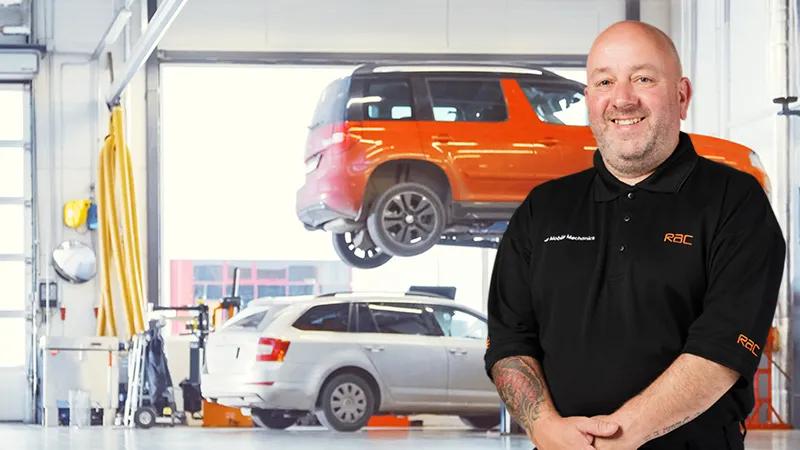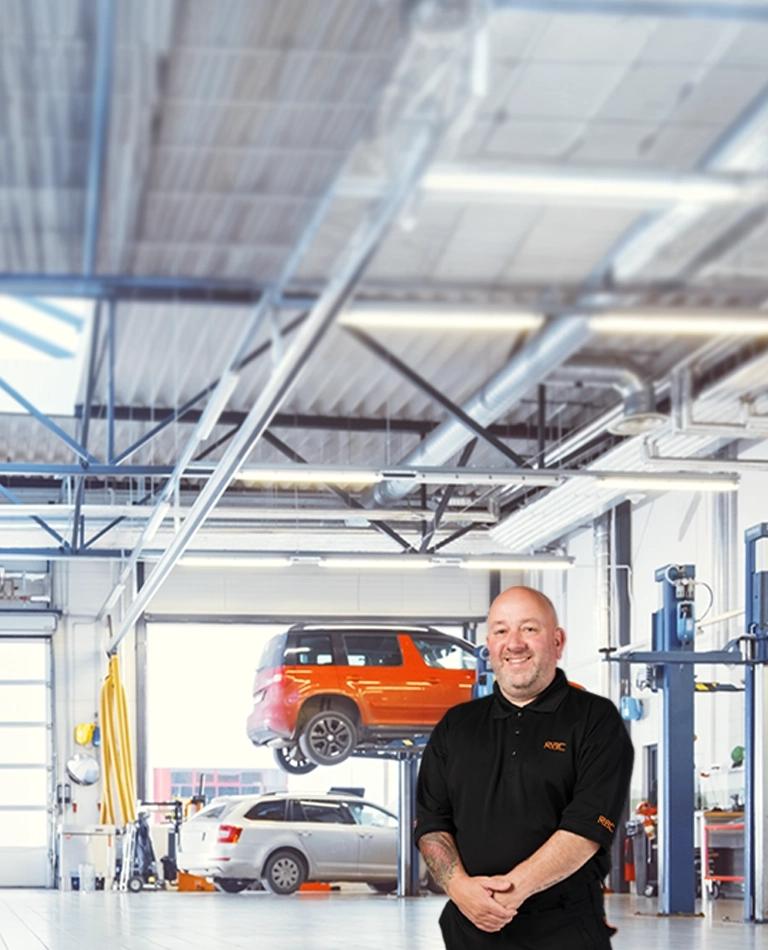£160.12
Average price for this repair for your Land Rover in the last 30 days^

Book a brake fluid top-up
Low or contaminated brake fluid can lead to reduced braking performance and make you take longer to stop. To help make sure your car is stopping safely, get your brake fluid checked and topped up.

Book a diagnostic
A mechanic will check your car for faults and talk you through any repairs you might need. There are various ways to check for faults, which could include a physical examination or plugging in to check your car’s onboard engine management system.
And it’s not just brake fluid top-ups that we do for Land Rover
RAC Approved Garages offer MOTs and services. Our professional mechanics have the expertise and experience to make sure your vehicle is operating safely and efficiently – results you can rely on at a price you can afford.

Try one of our RAC Approved Garages
Grease Monkeys Goole Ltd
T & K Motors
Witney Vehicle Repairs Ltd
MH Motor Experts LTD
CW Vehicle Service Centre
Frequently asked questions about a brake fluid change
Yes, you definitely need to change the brake fluid! Over time, it absorbs moisture, which lowers its boiling point and weakens its performance. This can cause your brakes to fade, work less effectively, or even fail.
If you don’t change your brake fluid, you’re putting yourself in danger – it’s as simple as that. Over time, brake fluid absorbs moisture, lowering its boiling point which makes your brakes less effective. Old brake fluid can also cause corrosion in the brake system, leading to costly repairs.
You can, but it needs the right tools and know-how. It's usually safer and better to let a mechanic handle it to make sure it’s done right.
Change your brake fluid every two to three years or every 30,000 miles. Check your car’s manual for exact timing.
No, mixing is a bad idea. Old fluid may have moisture and dirt, which can weaken the new fluid. Always replace all the old fluid to keep your brakes working their best.
A brake fluid flush is when all the old fluid is drained out and replaced with new fluid. This removes moisture and dirt from the brake system, helping it work safely and efficiently.


